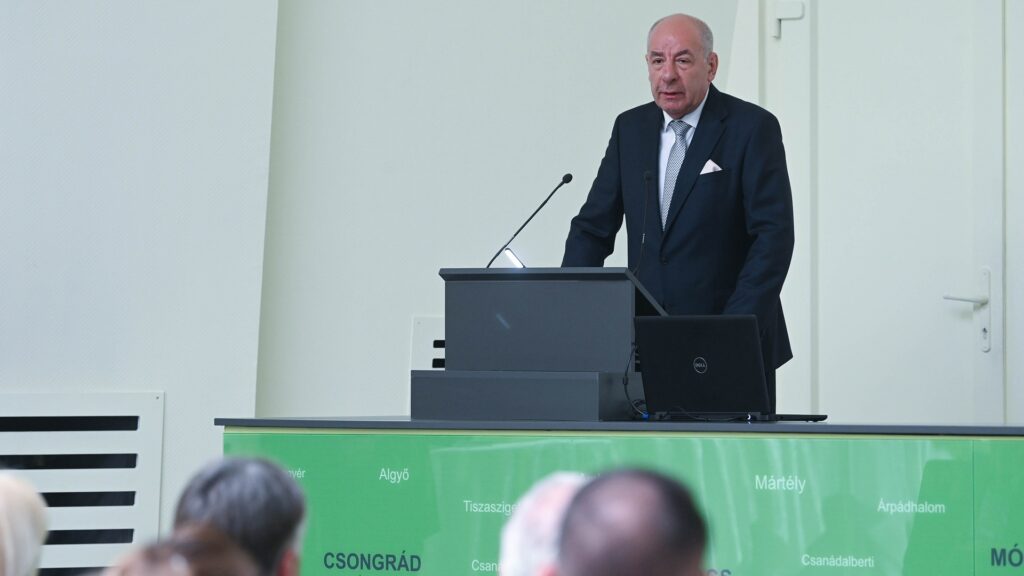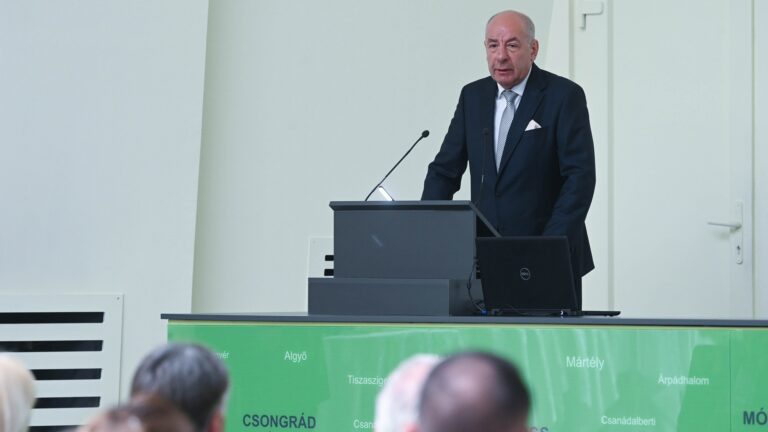Hungarian Government Commissioner for Artificial Intelligence (AI) László Palkovics visited Israel at the end of March, where—accompanied by Minister of Energy Csaba Lantos—he met with several Israeli technology companies. According to a recent interview with Index, Hungarian–Israeli technology cooperation could soon yield groundbreaking results, including a cloud-based traffic management system and humanoid robots manufactured in Hungary.
Arguably one of the most exciting aspects of the partnership, as Palkovics himself highlighted, is the joint development and production of humanoid robots. According to the government commissioner, these high-tech machines are already market-ready in Israel and awaiting delivery to commercial firms. ‘The technology is now beyond the experimental phase and ready for mass production,’ he explained. These human-like robots, capable of performing movements beyond human capability, can operate almost continuously, respond to voice commands, and communicate autonomously—making investment in the technology highly worthwhile.
In Hungary, the foundation for the production of humanoid robots is already in place, thanks to the country’s robust automotive sector. In many ways, vehicle manufacturing and robotics share key technological principles. ‘The car is the most complex consumer product—it incorporates every discipline, including energy production, energy storage, energy conversion, materials technology, and artificial intelligence,’ Palkovics noted. He described this as a significant opportunity for Hungary and revealed that, in collaboration with Israeli partners, they have already begun identifying companies capable of robotic manufacturing.
‘Mobileye’s system could significantly improve traffic safety by giving vehicles what he described as “supernatural” capabilities’
Palkovics also discussed Hungary’s partnership with Israeli company Mobileye, which includes the introduction of a cloud-based traffic management system in the capital, Budapest. This system is designed to support autonomous vehicles by collecting, storing, and sharing data from the traffic environment. Cars would both upload and retrieve information from the cloud, thereby enhancing the functionality of self-driving technologies. ‘In Budapest, we could develop a cloud system that manages autonomous vehicles and maps the capital in terms of traffic behaviour,’ he said. He added that Mobileye’s system could significantly improve traffic safety by giving vehicles what he described as ‘supernatural’ capabilities.
Reflecting on broader Hungarian–Israeli cooperation, Palkovics noted that the two countries have signed numerous agreements in recent years, and that current initiatives are building upon those foundations. He praised the entrepreneurial mindset of the Israeli people, stating: ‘The entrepreneurial spirit and adaptability of the Israeli people is a formidable force. There’s a reason why Israel is known as the “start-up nation”: starting a business, having an idea, and turning that idea into a company is second nature there.’ He added that Hungary should strive to adopt a similar approach to foster entrepreneurship at home.
Related articles:








